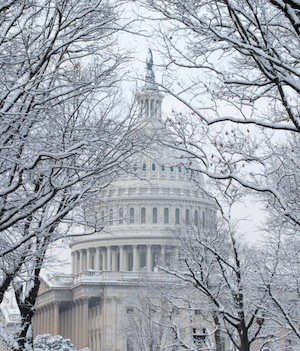“Democracy has to be born anew every generation, and education is its midwife.”
—John Dewey (ΦBK, University of Vermont)
Two hundred and forty-five years ago this December, The Phi Beta Kappa Society formed with the idea that the new nation required cultural institutions rooted in friendship, morality, and literature as a grounding force in turbulent times. This winter, democracy is a topic on many minds again as concerns grow for its fragility around the globe.
Johns Hopkins University President Ron Daniels, for example, draws upon political science, economics, history, and sociology in his new book, What Universities Owe Democracies, to identify four distinct functions of American higher education that are key to democracy: social mobility, citizenship education, the stewardship of facts, and the cultivation of diverse pluralistic communities. The Federation of State Humanities Councils recently launched Why Civics Matters, a conversation started in communities across 43 states about the histories, experiences, and value of civic participation. The Association of American Colleges and Universities, State Higher Education Executive Officers, Complete College America, and College Promise have created the Civic Learning and Democracy Coalition to reinvigorate higher education as an essential training ground for civic leadership and community engagement.
Today, Phi Beta Kappa firmly stands for the idea that inspired our beginnings: education in the liberal arts and sciences is essential for our democracy. We know that arts and sciences education can transform individuals and their communities. A story from the Society’s 2021 Key into Public Service conference highlights this work. Hailing from a fusion of Waseca, Minnesota, and Bangkok, Thailand, Phi Beta Kappa member Benya Krauss graduated from Tufts University in 2018 with a B.A. in international relations and minors in urban studies and colonialism studies. She assumed she would move to and float between big cities the rest of her life. A family situation diverted a D.C. internship and brought her back to Waseca. Krauss realized that little infrastructure and cultural narrative existed to bring young talent back to small towns and rural, economically distressed urban communities – particularly to engage in public service. She went on to co-found Lead for America, a national nonprofit that supports young talent in returning to their hometowns in more than 150 communities.
The Key into Public Service program highlights the wide range of opportunities like this one for liberal arts graduates to pursue and create rewarding careers in local, state, and federal government. Each Service Scholar will receive a $5,000 undergraduate scholarship and take part in a convening in June 2022 to provide them with training, mentoring, and reflection on pathways into active citizenship in the example set by many notable Phi Beta Kappa members changing the course of the nation through public service. If you know of a promising student who would like to apply their arts and sciences education in service, please encourage them to apply by January 23, 2022, at pbk.org/ServiceScholarsApp.
As we look ahead to this winter and beyond, the Society will continue to highlight opportunities to strengthen democracy through liberal arts and sciences education. If this topic is of interest, we encourage you to explore our State of the Arts & Sciences e-alerts, programming, social media, and toolkit resources.




